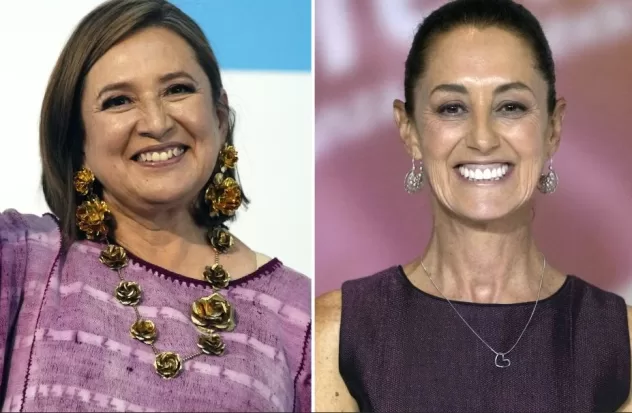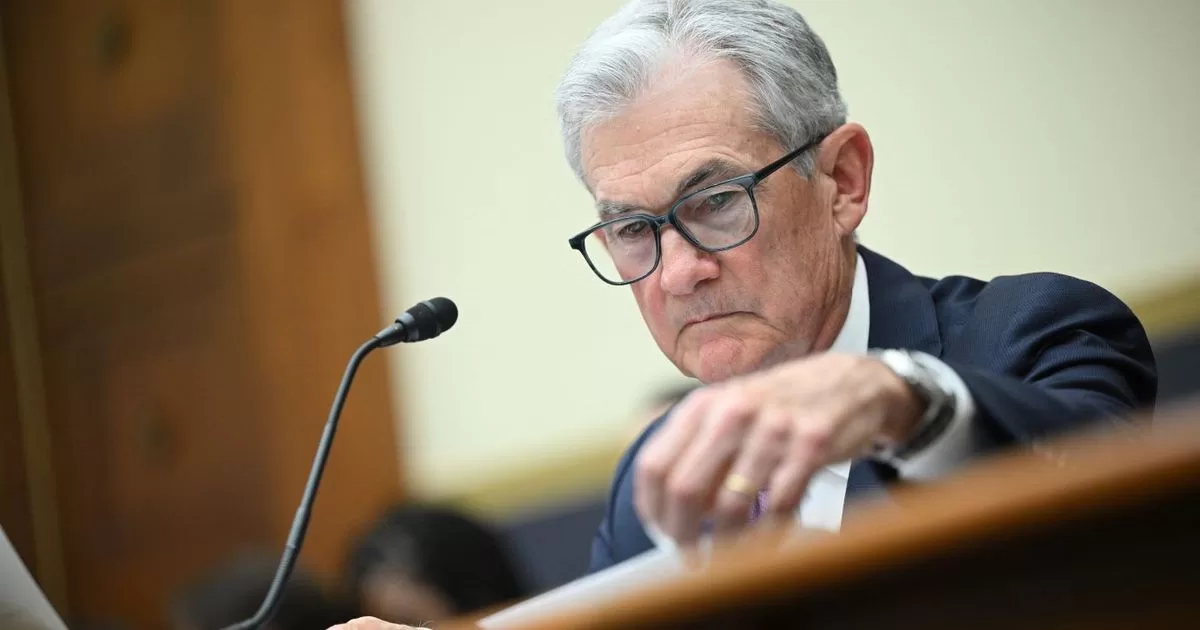Without any major surprises and with time restrictions that diminished its dynamism, the first presidential debate took place in Mexico, dominated by the struggle between the opposition Xóchitl Gálvez and the ruling party Claudia Sheinbaum, who remains the favorite in the electoral preferences. Her leadership is not expected to be affected following the confrontation.
Sheinbaum, candidate of the ruling Morena party, opened the debate with congratulations to the Mexican diplomats who returned to the country, “for their bravery” in the face of the moments of tension experienced in Ecuador, after the police force raided the Mexican embassy. in the South American country.
She immediately took the opportunity to attack her opponent, ensuring that during the debate two projects would be contrasted: “The one about returning to the past of corruption and the one that means moving forward with the transformation.”
The candidate Jorge Álvarez Máynez, the second to participate, began by introducing himself. Precisely, analysts pointed out that the debate would be his opportunity to make himself known, given the advantage that the other two candidates have.
The third turn to speak came to Gálvez, who directed a first attack on Sheinbaum, whom he identified as “a cold and heartless woman” for not paying attention to the families who complain about the shortage of medicines. She also said that she alone “comes to offer that the hugs for criminals continue, that the lack of medicines continue.”
He also reminded him of the collapse of an elevated line of the capital’s metro in 2021 during his administration in front of the Mexico City Mayor’s Office, which left 26 dead, and assured that the accident occurred due to lack of maintenance. “It was your responsibility,” he later blamed Sheinbaum, pointing out negligence.
The official responded to Gálvez’s accusations by accusing her of lying and having engaged in corruption when she was mayor in a capital municipality by irregularly granting some construction permits.
The two candidates who lead the voting intention polls exchanged constant reproaches, especially in the area of corruption, while the third candidate, Álvarez Máynez, directed to a lesser extent accusations against both, for the current government and for the previous leaders. .
Sheinbaum assured and reiterated that during his management in Mexico City he received numerous recognitions for transparency. While Gálvez and Álvarez Máynez criticized that the hirings of recent years are not publicly accessible.
Even in the counting of the time corresponding to each candidate there was some controversy due to inaccuracies. “They even want to take the time bag,” the Morena applicant reproached in reference to the fact that the moderator assigned Gálvez one minute and a half in one of the speaking turns, when it was later corrected and it was 53 seconds.
The opponent was also the subject of accusations for inconsistencies in her asset declaration, as Sheinbaum alluded, and for the contracts that some of her companies received, an argument that President López Obrador made on numerous occasions months ago in his morning conferences.
Gálvez responded that she is a businesswoman and “that is not a crime.” For her part, the former opposition senator scolded Sheinbaum if her family has signatures in tax havens as, according to her, she claimed, appears in the revelation of the Panama Papers. The official said that everything is false and she called her rival a “liar.”
The first televised confrontation between the candidates took place less than two months before the general elections on June 2 in which Sheinbaum emerges as a favorite. She remains at the top of the electoral preferences, surpassing Gálvez by more than twenty points.
According to political scientist Javier Rosiles Salas, the advantage that the official candidate maintains was not affected in any way after the debate since Gálvez “did not stand out enough to redirect electoral preferences.”
Rosiles Salas stated that the “stiff” format of the debate and the time limitations prevented the candidates from maintaining a more fluid dialogue and reduced their possibilities to delve deeper into their positions and proposals.
Along the same lines, Patricio Morelos, professor of Political Science at the Monterrey Institute of Technology, indicated that the very structure of the event made it very slow and “quite predictable” and ruled out the possibility of modifying electoral trends. “The one who most needed this event was Xóchitl and I think that in the first of three debates he did not achieve the goal of affecting Claudia Sheinbaum’s candidacy,” he added.
Electoral debates have become an increasingly common practice in recent decades that can lead to surprising twists in the results of the elections, as happened last year in Ecuador.
We invite you to visit us on the new NY1 Noticias channel on WhatsApp. There you will find the most relevant news about what is happening in New York, as well as other coverage about the rest of the country, Latin America and the world. click in this link to access the channel. We thank you in advance if you become one of our followers and express your reaction to what we publish with an emoji.







